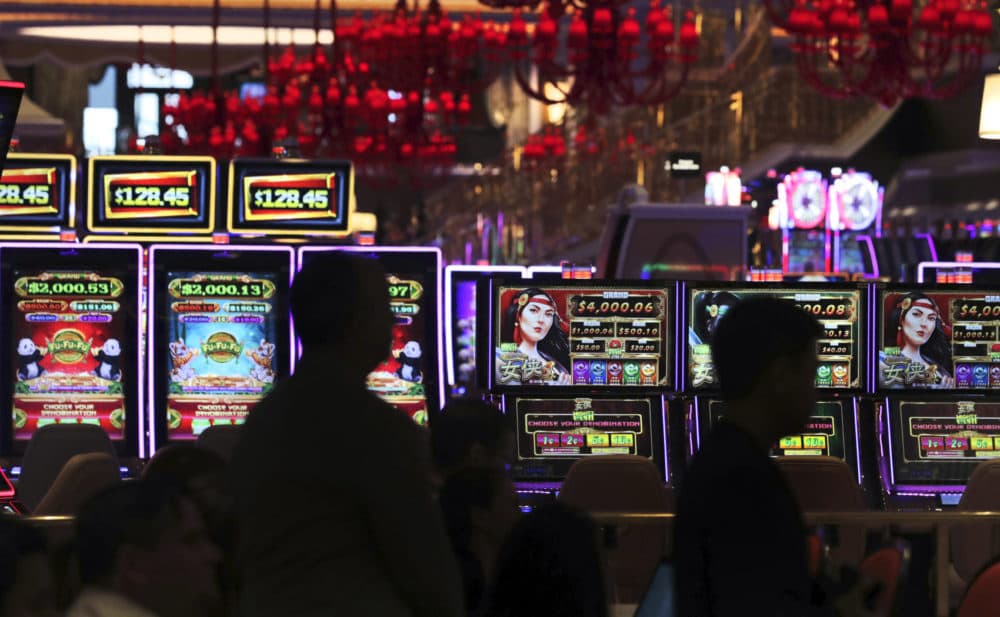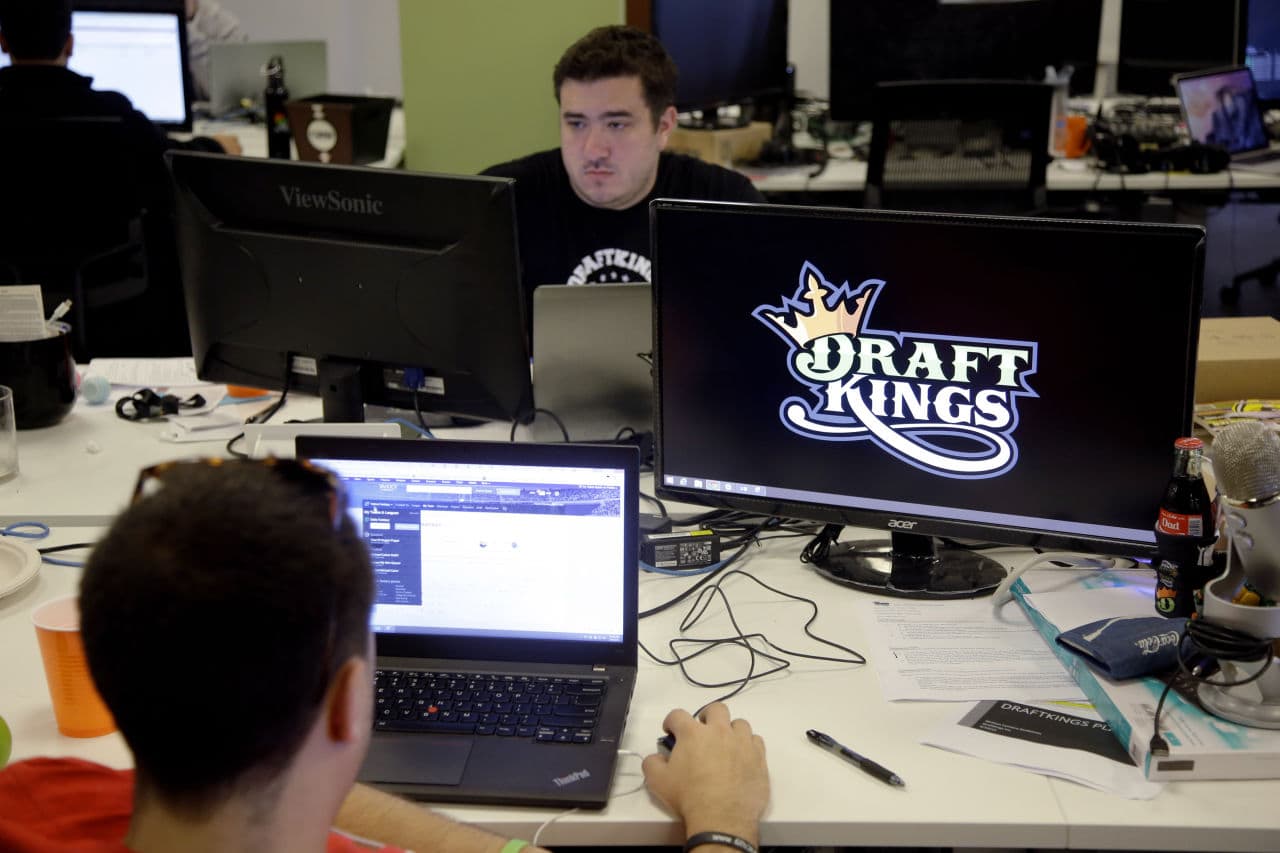Advertisement
Year In Mass. Gambling: Encore, DraftKings And The Lottery
Resume
It's been a big year for the gambling industry in Massachusetts. The state lottery set a revenue record. Boston-based DraftKings emerged as a leader in legal sports betting. And, after a high-stakes drama, Wynn Resorts opened a casino in Everett.
Wynn Resorts spent $2.6 billion to build the gleaming casino but scrubbed the Wynn name from the building after a scandal involving company founder Steve Wynn, opting to name it Encore instead. For a while, it was unclear whether the company would be allowed to keep its state gambling license — or whether it even wanted to.
Investigators for the Massachusetts Gaming Commission said in the spring that the company had mishandled sexual misconduct allegations against Steve Wynn, and then concealed those allegations from state regulators. The gaming commission held public hearings as it considered revoking Wynn Resorts' license as punishment.
Chief Executive Matt Maddox argued Wynn Resorts deserved to keep the license because it had cleaned house and changed its corporate culture.
"No matter who the CEO is of Wynn Resorts or who the chairman is, that would never happen again," Maddox said of the lapses that allowed Steve Wynn's alleged misconduct to continue for years. "We were going to transform ourselves from a founder-led company that was about a man, into a progressive company that's about the 25,000 people" who work at Wynn Resorts properties around the world.
The company reminded regulators that stripping its license could jeopardize more than 5,000 jobs in Massachusetts. The commission ultimately fined Wynn Resorts $35 million and let it keep the license.

But shortly after that favorable ruling by the gaming commission, Wynn Resorts acknowledged that for several weeks it had been in talks to sell Encore to MGM Resorts. The revelation made officials in Everett wonder whether Wynn was committed to the Encore project, but Wynn and MGM broke off negotiations a few days later, and the casino opened as scheduled in June.
Since then, business at Encore has been slower than anticipated, mirroring a statewide trend. In Encore's first full quarter, gross gaming revenue was about $150 million. At that rate, the casino would fall short of its first-year goal by 25%.
Gambling experts say one reason MGM may have been interested in buying Encore is that its own, year-old casino in Springfield has been missing revenue targets. MGM Springfield President Mike Mathis told New England Public Radio in September that snagging customers from the more established casinos in Connecticut is proving harder than the company expected.
"I think we may have underestimated that level of loyalty and what it would take for those customers to give us a shot," Mathis said.
Meanwhile, in the slot parlor at Plainridge Park Casino, revenue has been trending downward since March.
Overall, casinos are not generating as much tax money as lawmakers hoped.
It's a different story at the state lottery, which set a record in the 2019 fiscal year with $5.5 billion in revenue. The lottery pays out much of that money in prizes, but the agency's $1.1 billion profit goes to cities and towns as unrestricted local aid.
Despite these great numbers, the lottery's executive director, Michael Sweeney, is worried.
"We have been doing very well," he said at a gambling forum near the end of the fiscal year. "But what I like to remind people is the night before the Titanic hit the iceberg, it was setting a new record for crossing the Atlantic Ocean. And that's where lotteries in this country are right now."

One big concern is that Massachusetts will legalize sports betting. Sweeney's fear is that some of the money spent on scratch tickets today will go toward wagers on the Patriots or Red Sox tomorrow.
A landmark Supreme Court ruling last year opened the door for more states to legalize sports betting. Few companies are more excited than Boston's DraftKings, which started in fantasy sports and is now running sportsbooks for real games wherever it can.
For example: DraftKings recently signed a deal with the state of New Hampshire that allows the company to take bets online and in new gambling halls.
But DraftKings still can't take bets in its home state of Massachusetts. There is political momentum, in the form of multiple sports betting bills on Beacon Hill, including one filed by Gov. Charlie Baker.
Lawmakers have not hashed out key details, however, such as whether bets could be placed online or only in person, whether the state lottery should run its own sportsbook, and whether to allow betting on college sports.
So, even if signs point toward sports betting coming to Massachusetts sometime in the future, the first wagers may not be placed in 2020.
This segment aired on December 25, 2019.
